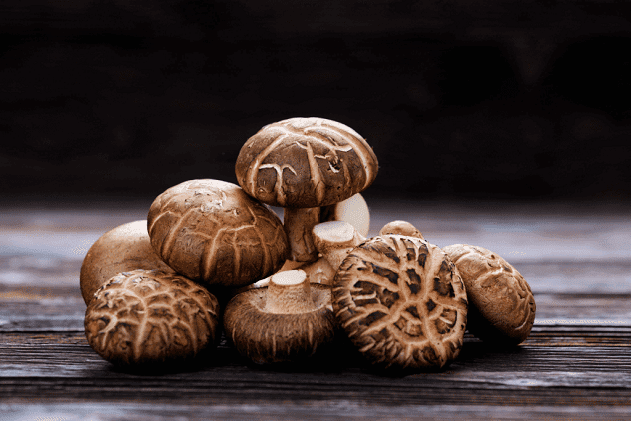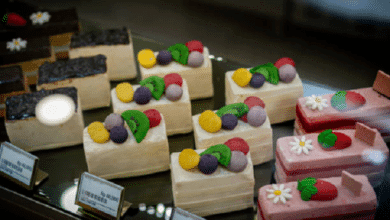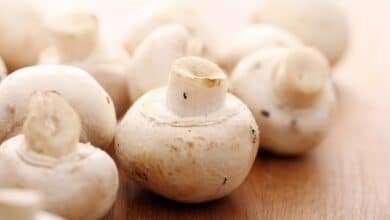Shiitake Mushroom Benefits, Uses, and Cooking Tips

Unlock shiitake mushroom unique flavors and health potential. This prized ingredient is known for its rich umami taste and remarkable health benefits. Revered in Asian cuisine and traditional medicine, shiitake mushroom offer more than a delicious culinary experience. They contain immune-boosting properties, heart health support, and essential nutrients. Whether fresh, dried, or powdered, shiitake mushroom provide a versatile and nutritious addition to any meal. Discover the benefits, forms, and best ways to enjoy this powerful superfood in your daily diet.
Nutritional Profile of Shiitake Mushrooms
Shiitake mushroom are a nutrient-dense, low-calorie food ideal for those seeking to add nutritional value without extra calories. They are particularly rich in protein, fiber, and essential vitamins like B vitamins and vitamin D. They also offer valuable minerals such as selenium, zinc, and copper, which support immune health and cellular protection.
| Nutrient | Amount per 100g | Health Benefits |
| Calories | 34 kcal | Ideal for weight management due to low-calorie content |
| Protein | 2.2g | Supports muscle repair and maintenance |
| Fiber | 2.5g | Aids digestion and promotes fullness |
| Vitamin D | 18 IU | Boosts bone health and immune function |
| B Vitamins | B1, B2, B6, B9 | Vital for energy metabolism and brain health |
| Minerals | Selenium, Copper, Zinc | Enhance immune response and antioxidant defenses |
The unique compounds within shiitake mushrooms, such as lentinan and eritadenine, have numerous health benefits, from supporting heart health to potentially having anti-cancer properties. Let’s dive into these benefits in more depth.
Health Benefits of Shiitake Mushrooms
Immune System Support
Shiitake mushrooms are rich in beta-glucans and lentinan, polysaccharides that stimulate the immune system, enhancing the body’s natural defenses against infections. Lentinan, a unique polysaccharide found in shiitakes, has been studied for its immune-boosting and even potential anti-cancer properties, showing promise in inhibiting tumor growth. Shiitakes also contain antioxidants, which protect cells from oxidative stress, keeping the immune system resilient.
Heart Health and Cholesterol Regulation
Eritadenine, a compound found exclusively in shiitake mushrooms, has been shown to lower LDL (bad) cholesterol, promoting heart health and reducing the risk of cardiovascular disease. Shiitakes also contain a wealth of fiber, which can help absorb excess cholesterol in the digestive system, further supporting cardiovascular health. Combined with antioxidants like selenium and copper, which reduce oxidative stress, shiitakes make an excellent addition to a heart-healthy diet.
| Shiitake Heart Health Benefits | Effect |
| Eritadenine | Lowers LDL cholesterol |
| Fiber | Absorbs excess cholesterol |
| Antioxidants | Protects cells from oxidative stress |
| Copper and Selenium | Supports anti-inflammatory responses and heart function |
Weight Management and Digestive Health
With their high fiber content, shiitake mushrooms promote satiety and aid in weight management by making you feel fuller for longer, reducing the likelihood of overeating. The fiber also contributes to digestive health by promoting regular bowel movements and supporting a balanced gut microbiome. A healthy gut flora is essential for nutrient absorption, energy balance, and immune function.
Bone and Skin Health
Shiitake mushrooms are one of the few non-animal sources of vitamin D, especially when exposed to sunlight. This makes them an essential food for bone health—vitamin D aids in calcium absorption, which is necessary for strong bones. Additionally, shiitake mushrooms are rich in minerals like copper and zinc, crucial in skin elasticity, collagen production, and joint health. Copper supports collagen formation, providing structure to the skin and preventing premature signs of aging.
Anti-Inflammatory and Antioxidant Properties
Shiitakes are packed with antioxidants, which help reduce oxidative stress, a factor linked to aging, heart disease, and chronic inflammation. Selenium and copper in shiitakes work together to combat inflammation and promote cellular repair, which is essential for overall health and longevity. These properties make shiitake mushrooms valuable in managing inflammation-related conditions and promoting longevity.
Different Forms of Shiitake Mushrooms and Their Uses
Fresh Shiitake Mushrooms
Fresh shiitake mushrooms are ideal for stir-fries, salads, and sautéed dishes. Their firm texture and deep, earthy flavor add richness to any recipe. When purchasing fresh shiitakes, look for mushrooms with smooth, firm caps and avoid any with soft or slimy spots. They are best stored in the refrigerator for up to a week, allowing you to enjoy them at peak freshness.
Dried Shiitake Mushrooms
Dried shiitakes are a convenient and versatile ingredient, as they have a longer shelf life and an intensified flavor. These mushrooms can be rehydrated by soaking in warm water for 20-30 minutes, making them a perfect addition to soups, broths, and stews. The soaking liquid, infused with shiitake’s rich umami taste, can also be used as a flavorful broth, adding depth to your dishes. Dried shiitakes are ideal for slow-cooked meals where their flavor can fully develop.
| Form of Shiitake Mushroom | Best Uses |
| Fresh Shiitake | Stir-fries, salads, and as a pizza topping |
| Dried Shiitake | Soups, stews, and flavorful broths |
| Shiitake Powder | Seasoning for marinades, broths, and teas |
Shiitake Mushroom Powder
Shiitake powder is made from grinding dried shiitakes and is a versatile option for those looking to add a subtle mushroom flavor without altering texture. The powder can be sprinkled into soups, broths, and marinades and used as a seasoning for popcorn or roasted vegetables. This form is convenient for adding flavor and nutrition to a wide range of recipes without the need for whole mushrooms.
Shiitake Capsules and Supplements
Shiitake capsules and supplements are an option for those looking to benefit from shiitake’s medicinal properties without adding them to food. These supplements can provide immune-boosting and heart-health benefits, although choosing high-quality, organic brands is essential. Always consult a healthcare provider before starting any new supplement, especially if you have existing health conditions.
How to Select and Store Shiitake Mushrooms
Selecting Fresh Shiitakes
When selecting fresh shiitake mushrooms, choose those with plump, firm caps and avoid mushrooms that appear slimy, bruised, or have an overly strong odor. The caps should have a rich brown color and a dry, slightly wrinkled texture. These indicators ensure that you purchase fresh shiitakes that will maintain their flavor and nutritional quality.
Storage Tips for Fresh Shiitakes
Fresh shiitakes should be stored in a paper bag in the refrigerator, which prevents moisture buildup and keeps the mushrooms from becoming soggy. This method allows the mushrooms to breathe and typically extends their freshness for up to a week. Avoid storing fresh shiitakes in plastic bags, as this can trap moisture and lead to spoilage.
Proper Storage for Dried Shiitakes
Dried shiitake mushrooms have a much longer shelf life and should be stored in an airtight container in a cool, dry place. Kept properly, they can last several months, making them an ideal pantry staple. Dried shiitakes can also be frozen for longer storage, allowing you to keep a supply on hand for extended periods without worrying about spoilage.
Rehydrating Dried Shiitakes
To prepare dried shiitakes, soak them in warm water for 20-30 minutes until they rehydrate and soften. The soaking liquid, infused with the mushroom’s deep umami flavor, can be saved and used as a broth or soup base. After rehydrating, the mushrooms can be sliced or chopped as desired and used in various dishes.
Top Cooking Tips for Shiitake Mushrooms
Cleaning Fresh Shiitakes Properly
When preparing fresh shiitakes, it’s best to clean them with a damp cloth rather than rinsing them under water. Shiitakes are highly absorbent and can become soggy if submerged in water. Gently wipe the mushrooms to remove dirt, and trim the stems if desired.
Sautéing for Enhanced Flavor
Sautéing shiitake mushrooms on medium-high heat with a small amount of oil helps release their rich umami flavor. Avoid overcrowding the pan to achieve a golden-brown finish and prevent steaming. Add salt towards the end of cooking to enhance the mushrooms’ natural flavors.
Using Shiitakes in Broths and Soups
Shiitake mushrooms make an excellent addition to broths and soups, especially when using dried mushrooms. Their deep, earthy flavor intensifies when simmered, creating a savory base for dishes like ramen, miso soup, or vegetable broths. The rehydration liquid from dried shiitakes can also be added to boost flavor.
Pairing Shiitakes with Complementary Ingredients
Shiitake mushrooms pair wonderfully with garlic, ginger, soy sauce, and sesame oil, making them a perfect choice for Asian-inspired recipes. For richer, creamy dishes, consider pairing shiitakes with coconut milk or cream, which complement their earthy flavor. Shiitakes also add depth to rice, pasta, or root vegetable dishes.
Potential Side Effects and Precautions
While shiitake mushrooms are generally safe for most people, it’s essential to be aware of possible side effects. Some individuals may experience allergic reactions or digestive discomfort, particularly if consuming large amounts. Additionally, shiitake dermatitis, a rare skin reaction, can occur from undercooked mushrooms. Always cook shiitakes thoroughly to reduce this risk.
Interesting Facts About Shiitake Mushrooms
- Rare Source of Plant-Based Vitamin D: Shiitakes produce vitamin D when exposed to sunlight, making them a valuable vegan source of this vital nutrient.
- Traditional Medicine: Shiitakes have been used in traditional Chinese medicine for centuries to improve health, boost immunity, and increase energy levels.
- High in Natural Glutamates: Shiitake mushrooms’ natural glutamates are responsible for their umami flavor, making them a popular choice in savory dishes.
FAQs About Shiitake Mushrooms
Q: Are shiitake mushrooms vegan-friendly?
A: Yes, shiitake mushrooms are plant-based and offer nutrients like vitamin D and B vitamins, which are beneficial for vegan diets.
Q: What’s the proper method to rehydrate dried shiitake mushrooms?
A: Soak them in warm water for 20-30 minutes until softened. The soaking liquid is rich in flavor and can be used in soups or sauces.
Q: How should shiitake mushrooms be stored for maximum freshness?
A: Fresh shiitakes should be kept in a paper bag in the fridge, while dried ones are best stored in an airtight container in a cool, dry place.
Q: Is it safe to eat shiitake mushrooms raw?
A: It’s best to cook shiitakes as it enhances flavor, improves digestibility, and reduces the risk of shiitake dermatitis.
Q: What are some creative ways to use shiitake mushrooms in cooking?
A: Shiitakes are perfect in soups, stir-fries, risottos, and pasta dishes. They can even be sprinkled as a powder on popcorn for a unique flavor twist.
Conclusion
Shiitake mushrooms are more than a culinary delight; they’re a nutritional powerhouse that benefits heart health, immunity, digestion, and skin. With their versatile forms—fresh, dried, and powdered—shiitakes bring flavor and wellness to various dishes. From immune support to antioxidant properties, these mushrooms enhance the taste and nutritional value of meals, making them an excellent addition to any health-conscious diet.



